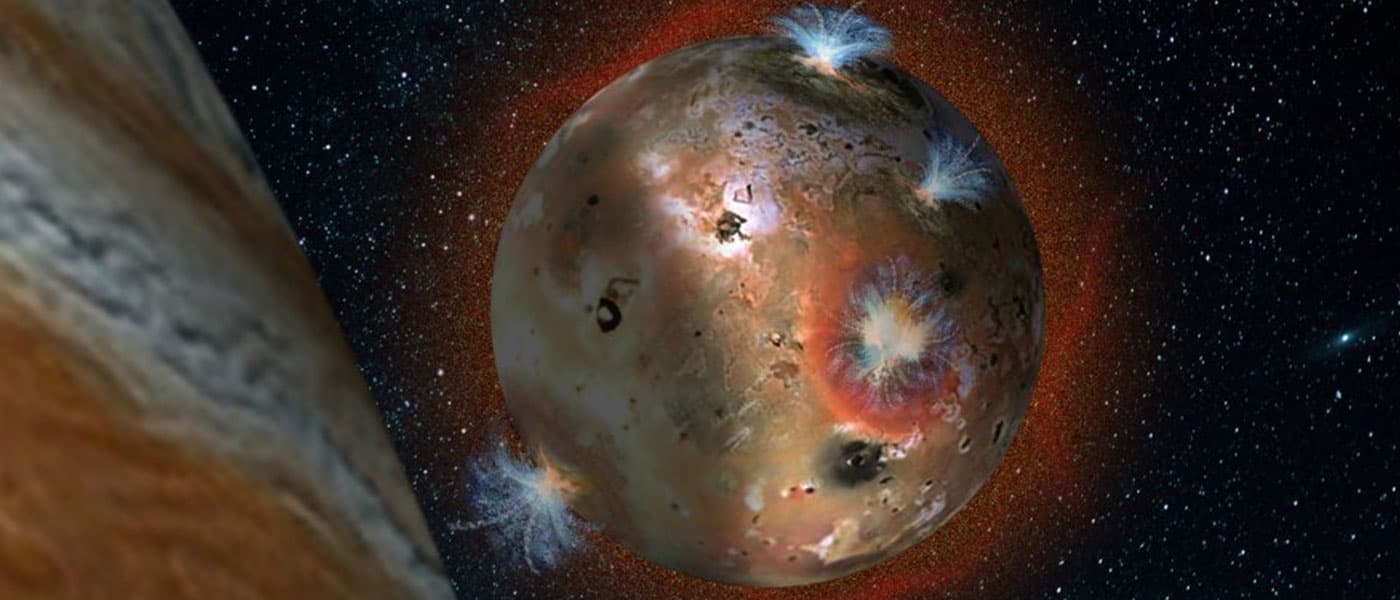Atmospheric Collapse
Io, Jupiter’s frozen moon, has a thin, toxic atmosphere with the most active volcanoes of all the known bodies in our Solar System. Astronomers have long suspected that its atmosphere deflates whenever Jupiter eclipses it, causing its already cold climate to get even colder.
For the first time ever, astronomers have gained solid visual proof of this phenomenon through the Gemini North telescope in Hawaii, with the help of a long-range spectrograph, which monitors the atmospheric composition of Io.
This combination allows them to measure the electromagnetic signatures from Io in real-time, which is how they observed the drop in sulfur dioxide content of the Io’s atmosphere. "This research is the first time scientists have observed this remarkable phenomenon directly, improving our understanding of this geologically active moon," said lead researcher Constantine Tsang from the Southwest Research Institute in Colorado.
As the giant planet shadows Io, the absence of the Sun’s heat triggers a plummet in Io’s temperature, freezing its sulfur dioxide-rich atmosphere and causing it to collapse to the surface. This happens for two hours on a daily (about 1.7 Earth days) basis.
Next-Day Repair...Everyday
The frozen moon’s atmosphere bounces back just as fast as it collapses. As soon as Io moves out of Jupiter’s shadow, the Sun gradually heats it up and gets the sulfur dioxide back out in the atmosphere, which then brings the temperature from -270 degrees Fahrenheit to -235 degrees. "This confirms that Io’s atmosphere is in a constant state of collapse and repair, and shows that a large fraction of the atmosphere is supported by sublimation of SO2 [sulphur dioxide] ice," says John Spencer, another team member. "We’ve long suspected this, but can finally watch it happen."
We are guaranteed to learn more about Jupiter and its moons soon, as the Juno spacecraft landed on the giant planet last month. In fact, Juno got a message from Jupiter before it even landed, in the form of a strange welcome noise.
Share This Article
